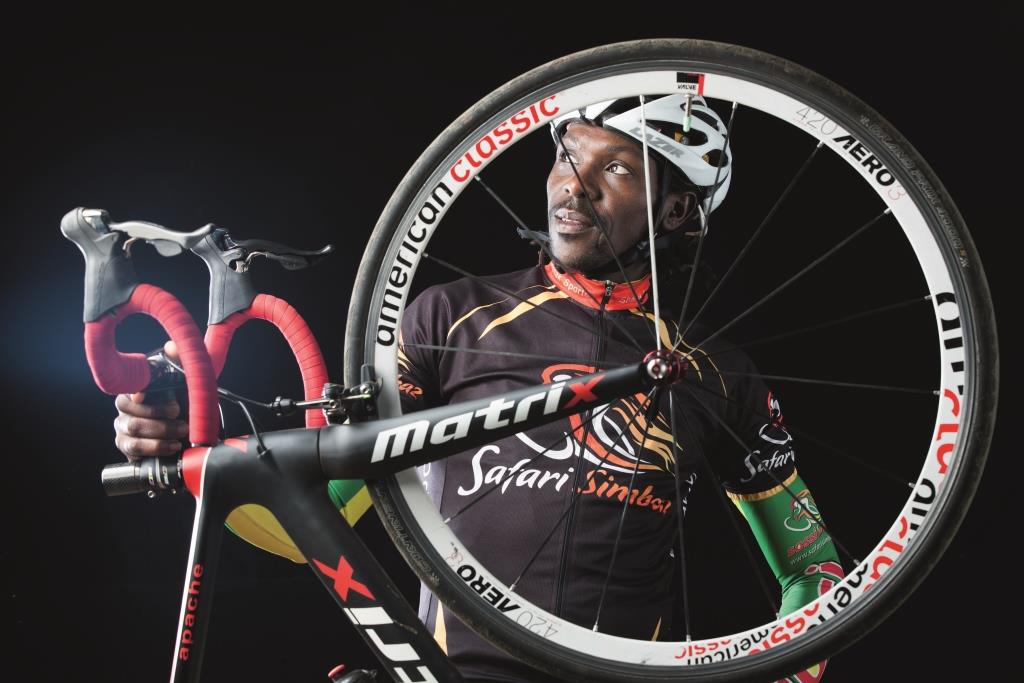On December 1, 1997, David Kinjah won a cycle race in Kenya on a day that was to change his life and help shape the future winner of the Tour de France.
As Kinjah sat high in the saddle, flushed with victory, Jane Froome walked up with her 12-year-old son, Chris.
“The mum was introducing the boy to the guy who won the race,” says Kinjah.
Froome said she tried to enter her son, but found there was no junior category. She asked Kinjah to train young Chris.

Loading...
That moment sowed the seed of a Tour de France victory and turned Kinjah into training a string of Kenyan cyclists.
A week later, Froome went to visit Kinjah in Muguga, his village—a 20-minute drive from Nairobi.
“The mother was a bit unsure and afraid about bringing Chris to the village. Chris was shy and not such a strong rider. But he loved bikes and soon opened up and enjoyed the village life. With time, the mother was now a bit more comfortable with him coming to the village,” says Kinjah.
In the steep hills around the village, Froome gathered the power that was to drive him over the finish line in Paris. By the time he went to school in South Africa, the cycling world was opening up.
“He saw how big a sport cycling is and he connected with what we were doing here. When he came back to Kenya for school holidays he was much more energized and we would spend weeks camping and riding,” says Kinjah.
On July 28, Kinjah and the Safari Simbaz team rode to Muguga, to celebrate Froome’s victory.
“There has been a lot of buzz in the local and international press wanting to know what we are doing after a Kenyan born rider went on to win the tour,” says Kinjah.

Kinjah, 41, was born in Kenya’s Rift Valley, in the town of Eldoret, where his dad worked as a manager at a textile firm. He was the fourth born in a family of seven. When he was six, the family moved to the coastal town of Mombasa.
“I was never interested in bicycles because I played a lot of table tennis and was an altar boy at a catholic church in Mombasa,” he says.
In his free time, he played beach soccer and volleyball. The only problem was the beach was 20km from home.
In 1994, Kinjah spent $11 pocket money on a BMX bike, so he could pedal to the beach.
“Slowly the other cyclists on the road started to be my competition. I used to ride harder and faster so that they [were] not passing me. I used to enter into all these unofficial competitions on the road,” he says.
Kinjah began fixing and modifying his own bike. His father, who was a manager at a steel factory, helped him with spanners and spares, but that is as far as it went.
“My dad was harsh when I started cycling. He never supported my cycling. But even though my mum did not have money she was curious to see what I was doing with the bike,” he says.
On the road, he met cyclists like Patrick Tindi and Sabry Mohammed, who competed in races in Mombasa.

“Tindi is one of the guys who had confidence in me and he paid for my ticket to attend my first national race,” he says.
Matthews Maina was another Kenyan cyclist who taught Kinjah racing strategy. Despite this, his first race proved a disaster.
“The race was 120 kilometers but I was naïve and started off very fast and by the 70th kilometer I was burnt out, so I blacked out in a bush,” he says.
Kinjah went on to win national races and competed in the 1995 All Africa Games, in Zimbabwe. He rode professionally in Europe and rode a 2,500km race in Australia.
In 2000, he founded the Safari Simbaz, which trains around 20 youngsters aged between 15 and 23. One day, he hopes to set up an academy with Froome.
For now, Kinjah’s star pupil is covered in Tour de France glory and his once skeptical father is now his number one fan.
Loading...
